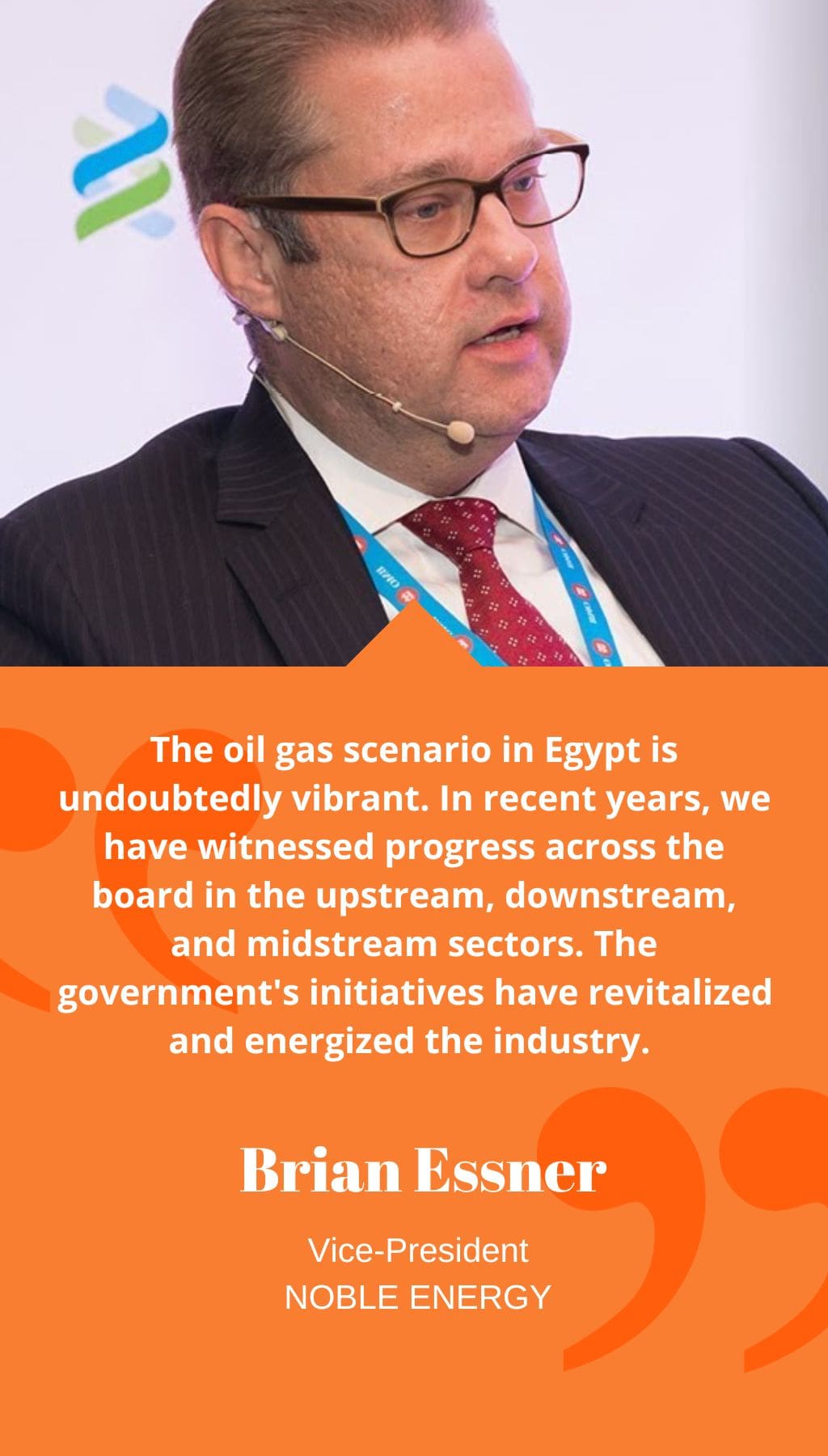
- Egypt | 15 April 2022

How would you describe the current oil and gas scenario in Egypt?
The oil gas scenario in Egypt is undoubtedly vibrant. In recent years, we have witnessed progress across the board in the upstream, downstream, and midstream sectors. The government’s initiatives have revitalized and energized the industry. This has encouraged us to adopt a more aggressive approach, entering the country as both a gas seller and a midstream player with pipeline ownership. We are also exploring upstream opportunities to further contribute to Egypt’s energy sector.
What potential do you see in exploration and production (E&P) activities in Egypt?
Egypt holds significant potential for E&P activities. There are still untapped opportunities in upstream resource plays, and we are keen to participate in those. With our extensive experience in deepwater natural gas plays in the Eastern Mediterranean, we believe we have a competitive advantage to capitalize on these opportunities.
What is your perspective on Egypt’s regional hub strategy and the country’s leadership in this regard?
Noble Energy has been present in the Eastern Mediterranean since 1998. We have made substantial natural gas discoveries, totaling around 40 trillion cubic feet (1.13 trillion cubic meters) in Israel and Cyprus. While the Eastern Mediterranean market remains distinct and lacks interconnected infrastructure, Egypt’s leadership has taken significant steps to connect the larger Levantine Basin. We appreciate the connections established between Israel, Egypt, Jordan, and Cyprus. As we prepare to bring the Leviathan field online, we will commence substantial gas sales to Jordan and Egypt, aligning with the regional hub vision.
The East Mediterranean Gas Company (EMG) pipeline investment is a crucial first step in this direction. Despite the complexity of the transaction, we have been working closely with our partners and receiving support from both the Egyptian and Israeli governments. Technical work has progressed well, with gas successfully flowing through the pipeline. We anticipate completing the flow test in the next couple of months. When Leviathan comes online later this year, we will begin full-time gas sales to Egypt through EMG. The EMG project sets the foundation for the Egypt energy hub, which we believe will expand further, taking advantage of existing infrastructure and liberalizing the market. Additionally, utilizing LNG facilities and exporting via the global LNG market is crucial. We anticipate conducting LNG exports from Israel and Cyprus, as well as from our upstream positions in Egypt.
How does Egypt’s existing infrastructure contribute to the region’s LNG sales potential?
Egypt’s LNG facilities have a capacity of a little over 2 billion cubic feet (56.6 million cubic meters) per day, while the entire Israeli market is approximately 1 billion cubic feet (28.3 million cubic meters) per day. Purely based on LNG plants, Egypt’s capacity is double the size of the market we currently serve. This doesn’t even consider the significant local market in Egypt or the one in Jordan. The LNG capacity in Egypt is a game-changer, and its expansion capacity offers a cost-competitive option for future growth. As long as gas reserves continue to be discovered, these projects will become even more competitive globally.
As an experienced player in deepwater operations in the East Mediterranean, do you believe the success of Zohr can be replicated?
From a government approvals perspective, I believe it can be replicated. The expedited development of Zohr showcased the government of Egypt’s ability to move swiftly and efficiently. In our experience working in various jurisdictions worldwide, we often use the Zohr example as the benchmark for how governments should engage with companies. The government identified the opportunity, cleared the path for development, and worked as a partner.














